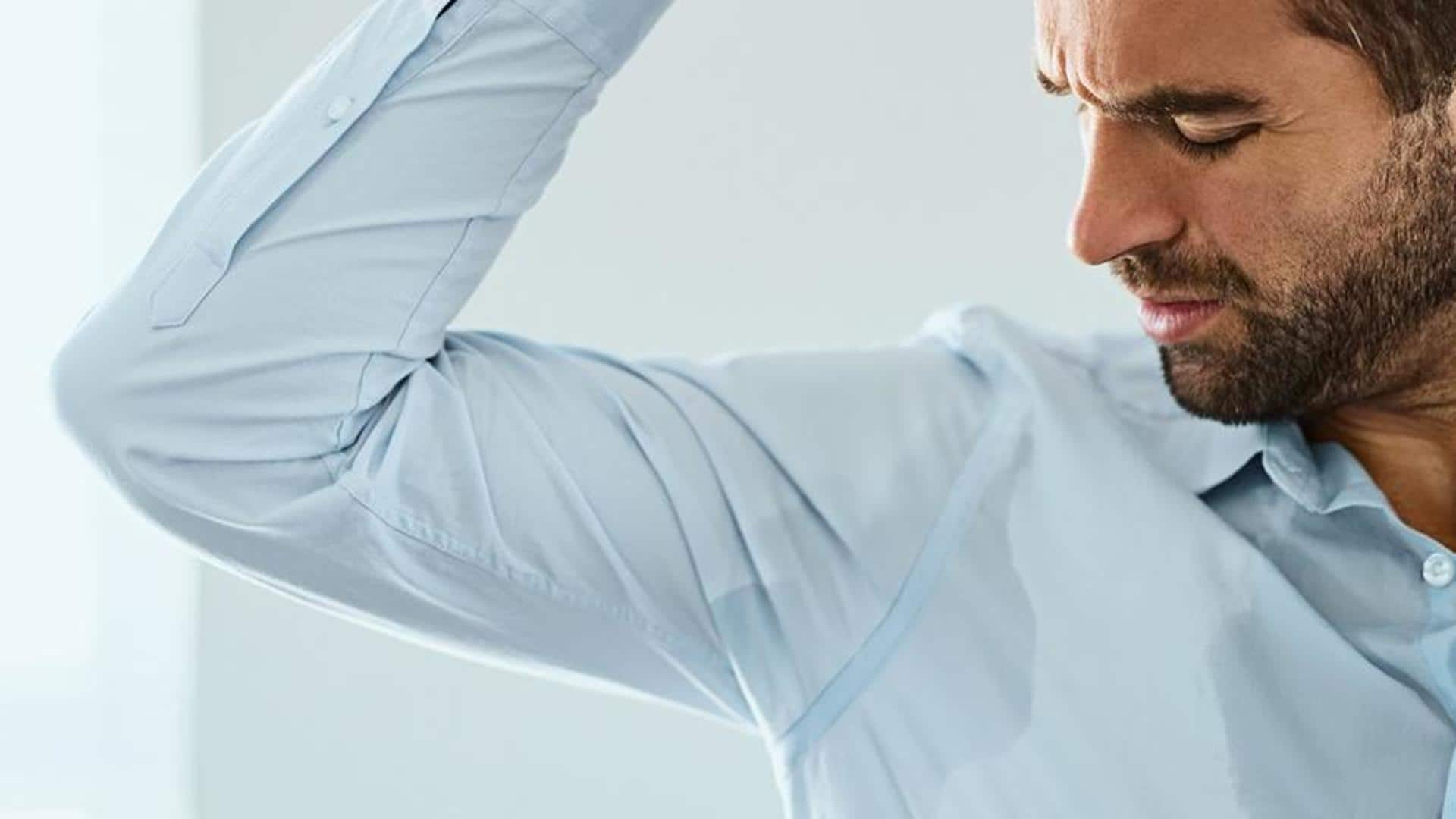
Human sweat odors might boost mental health treatment, finds study
What's the story
A team of European researchers has found that exposure to human odor (of sweat), may aid treatment for mental health conditions, particularly social anxiety. It is a condition where people are excessively worried about social interactions. The research revealed that patients exposed to sweat odors during the mindfulness therapy showed greater improvement when compared to the group that received only the mindfulness treatment.
Study
The patients were exposed to human 'chemo signals'
What essentially happens in mindfulness therapy is that patients are trained to cultivate awareness and bring their focus to the present moment. In the preliminary study, patients were exposed to human 'chemo signals,' commonly known as body odor, which was collected from the underarm sweat of volunteers. Patients exposed to these chemo signals, while they were undergoing mindfulness therapy, showed reduced social anxiety.
Official words
"Combining chemo-signals with mindfulness therapy seem to produce better results"
"Our state of mind causes us to produce molecules (or chemo-signals) in sweat which communicate our emotional state and produce corresponding responses in the receivers," explained Elisa Vigna, the study's lead author. "The results of our preliminary study show that combining these chemo-signals with mindfulness therapy produces better results in treating social anxiety than can be achieved by mindfulness therapy alone," she added.
Process
Sweat was collected while volunteers were watching short movie clips
The sweat samples were collected while volunteers were watching short clips of movies. The films were chosen so as to evoke a particular emotion, like fear or happiness. Researchers wanted to understand if different emotions experienced while perspiring had an effect on the treatment. The clips were taken from horror movies like The Grudge and comedy films like Sister Act, and Mr. Bean's Holiday.
Testing
Researchers picked 48 women suffering from social anxiety
The team selected 48 women, aged between 15 and 35 with social anxiety. The patients were divided into three groups, each with 16 members. All groups received mindfulness therapy, over a period of two days. Simultaneously, each group was exposed to a different sweat odor, based on the type of video clips the volunteers watched. The control group was exposed to fresh air.
Results
Researchers found that women exposed to sweat showed better response
Women exposed to the sweat of volunteers who watched funny or scary movie clips showed a better response to the mindfulness therapy compared to those who hadn't been exposed. Further, the emotional state of the person while perspiring didn't affect the treatment. "Sweat produced while someone was happy had the same effect as someone who had been scared by a movie clip," said Vigna.
Stats
Patients exposed to odor showed 39% reduction in anxiety scores
Individuals who received one treatment session of mindfulness therapy along with exposure to human body odors, showed about a 39% reduction in anxiety scores. In comparison, the control group which received only mindfulness therapy showed a 17% reduction in anxiety. "However, we caution that this is a proof-of-concept study," said Vigna and added the team is starting a "bigger study to confirm the findings."
Follow up
The team will perform follow-up studies
"So there may be something about human chemo-signals in sweat generally which affects the response to treatment," Vigna claims. Her team intends to carry out follow-up studies which will also include testing the sweat of volunteers who watch emotionally neutral documentaries. The investigations should help determine whether "any potential therapy benefits stem from the unconscious perception of specific emotional signals."